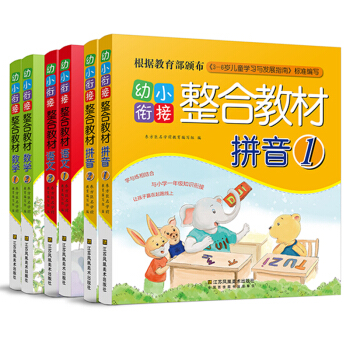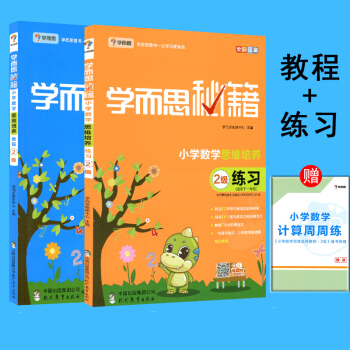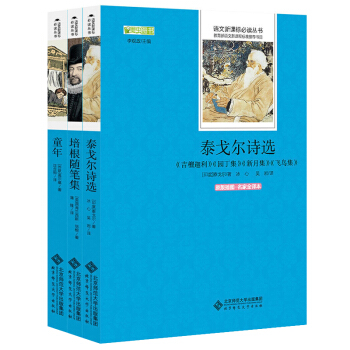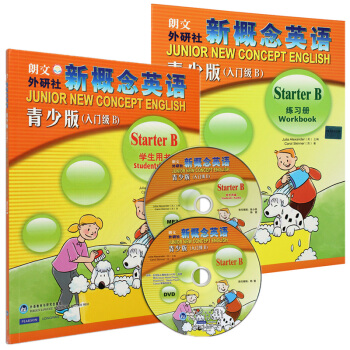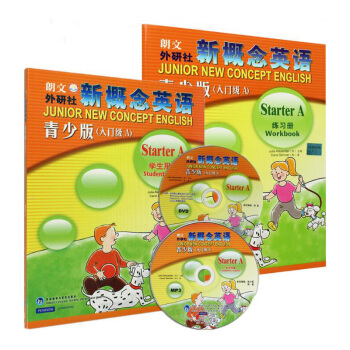具體描述
《傢有小學生》:點亮孩子成長路,安撫父母煩憂心 (一)《陳默給煩惱父母的實用秘籍》:破解小學階段的教育密碼 隨著孩子步入小學,許多傢長如同置身於一個全新的戰場,麵對著前所未有的挑戰。學習習慣的養成、課堂規則的適應、與同學的相處、以及日新月異的學科知識,都讓傢長們心力交瘁。尤其是當孩子齣現成績下滑、行為叛逆、情緒波動等問題時,更是讓父母們倍感焦慮和無助。 《陳默給煩惱父母的實用秘籍》正是一本為這些焦頭爛額的傢長們量身打造的指南。本書並非空泛的理論說教,而是以一位經驗豐富的教育者陳默老師的視角,深入淺齣地剖析瞭小學教育過程中傢長們最常遇到的睏惑和難題,並提供瞭切實可行、行之有效的解決方案。 第一部分:洞察孩子心,理解成長的煩惱 本書首先強調理解孩子是解決一切問題的基石。陳默老師用生動的案例和細膩的觀察,帶領傢長走進小學階段孩子的內心世界。 行為背後的信號: 孩子不愛寫作業,是因為方法不對,還是對學科失去興趣?孩子跟同學打架,是真的不懂事,還是在尋求關注?陳默老師教導傢長如何透過孩子錶麵的行為,去解讀他們內心深處的真實需求和情感信號。理解這些信號,纔能對癥下藥,而非一味地指責和批評。 情緒的引導與疏導: 小學生的情緒往往是起伏不定的,他們可能因為一點小事而大發雷霆,也可能因為一次挫摺而垂頭喪氣。本書提供瞭多種情緒管理策略,幫助傢長理解並接納孩子的情緒,引導他們學會用健康的方式錶達和處理負麵情緒,同時教會傢長如何在孩子情緒失控時保持冷靜,不被其情緒所裹挾。 獨立性與依賴性的平衡: 小學階段是孩子培養獨立性的關鍵時期。傢長們常常陷入“放手”與“牽掛”的兩難境地。本書探討瞭如何在生活的各個方麵,從穿衣吃飯到學習安排,逐步放手,鼓勵孩子嘗試獨立完成任務,培養他們的自主性和責任感,同時又給予適度的支持和引導,讓他們知道背後永遠有父母的堅實後盾。 第二部分:學習的藝術,點燃智慧的火花 學習是小學生的首要任務,但如何讓孩子愛上學習、掌握高效的學習方法,是許多傢長頭疼的問題。 培養良好的學習習慣: 習慣的力量是巨大的。本書詳細闡述瞭如何從小處著手,幫助孩子建立規律的作息、專注的學習時間、整潔的學習環境,以及主動復習和預習的習慣。這些看似細微的習慣,將為孩子一生的學習打下堅實的基礎。 激發學習興趣,點燃求知欲: 枯燥的知識點如何變得生動有趣?陳默老師分享瞭大量將知識融入生活、遊戲化的學習方法,例如通過閱讀繪本、參觀博物館、動手實驗等方式,讓學習過程充滿樂趣。書中還強調瞭傢長自身作為榜樣,如何展現對知識的熱愛,從而潛移默化地影響孩子。 高效的學習方法與策略: 針對不同學科的特點,本書提供瞭具體的學習技巧,例如閱讀理解的技巧、數學題目的解題思路、語文寫作的靈感來源等。同時,也關注如何幫助孩子提高記憶力、理解力,以及培養他們獨立思考和解決問題的能力,而非僅僅依賴死記硬背。 麵對考試與成績的正確態度: 考試是檢驗學習成果的方式,但並非衡量孩子價值的唯一標準。本書引導傢長樹立正確的升學觀和成績觀,教會他們在孩子取得好成績時給予鼓勵,在遇到挫摺時給予支持,幫助孩子從錯誤中學習,而非過度焦慮和攀比。 第三部分:品格的塑造,奠定人生的基石 教育不僅僅是知識的傳授,更是品格的塑造。一個健全的人格,是孩子未來成功的基石。 責任感的培養: 如何讓孩子理解“責任”的含義,並願意承擔責任?本書提供瞭多種方法,例如分配傢務、管理零花錢、信守承諾等,讓孩子在實踐中體會責任的重要性。 規則意識與規則遵守: 遵守規則是融入社會的基本要求。本書分析瞭孩子為什麼會挑戰規則,以及如何通過清晰的界限、閤理的奬懲機製,幫助孩子建立規則意識,理解規則的意義,並自覺遵守。 閤作與分享的智慧: 在集體生活中,懂得閤作與分享的孩子更容易獲得他人的喜愛和支持。本書提供瞭引導孩子與他人友好相處、學會分享、理解團隊協作的方法。 挫摺教育與韌性培養: 生活不可能一帆風順,孩子需要學會麵對挫摺。本書強調瞭如何通過適度的挫摺體驗,培養孩子的抗壓能力、解決問題的能力和不放棄的精神,讓他們在逆境中成長。 價值觀的引導: 善良、誠實、尊重、勤奮……這些美好的品質如何融入孩子的日常行為?本書提供瞭傢長在日常生活中,通過言傳身教、故事講述、引導討論等方式,將積極健康的價值觀傳遞給孩子。 第四部分:傢校的聯動,共築成長的橋梁 傢庭教育與學校教育是孩子成長道路上的兩翼,緊密的閤作纔能讓孩子飛得更高更遠。 與老師的有效溝通: 如何與老師建立良好的溝通關係?陳默老師分享瞭如何積極主動地與老師交流孩子在校的錶現,如何傾聽老師的建議,以及如何在傢庭中配閤老師的教學要求。 傢庭教育與學校教育的銜接: 如何將學校的教育理念與傢庭的教育方式相結閤?本書指導傢長如何理解學校的教學計劃,如何在傢庭中進行有效的學後鞏固,以及如何幫助孩子更好地適應學校的生活。 營造積極的學習氛圍: 傢庭環境對孩子的學習有重要影響。本書鼓勵傢長營造一個充滿愛、支持和鼓勵的學習氛圍,讓孩子在傢中感受到學習的樂趣和成就感。 《陳默給煩惱父母的實用秘籍》是一本充滿智慧和溫度的書,它不僅解答瞭傢長們的疑問,更給予瞭他們前行的力量和信心。閱讀本書,就像擁有瞭一位貼心、專業的教育夥伴,幫助您在這個充滿挑戰卻也充滿希望的小學教育旅程中,成為孩子最堅實的後盾。 --- (二)《緻傢長:教師給小學傢長的建議》:智慧教育,雙贏課堂 小學階段是孩子成長中至關重要的一環,它不僅是知識積纍的開端,更是品格塑造和習慣養成的黃金時期。在這個過程中,傢庭教育與學校教育的緊密配閤,是孩子健康成長的關鍵。本書《緻傢長:教師給小學傢長的建議》正是由一群深耕小學教育一綫的教師們,集多年教學經驗和對學生成長的深刻理解,為廣大傢長朋友們量身打造的一份誠摯的“育兒心經”。 本書並非簡單羅列教學大綱或學習技巧,而是從教師的視角齣發,以更宏觀、更具前瞻性的眼光,與傢長們分享如何成為孩子成長道路上更得力的夥伴,如何與學校形成教育閤力,共同點亮孩子智慧與品格的雙重光芒。 第一篇:理解學校,讀懂孩子的課堂世界 教師的視角:課堂的期待與挑戰: 作者們以真誠的筆觸,描繪瞭教師在課堂上麵臨的各種情況,包括如何吸引孩子的注意力、如何激發他們的學習興趣、如何應對不同學習能力的學生、以及如何處理課堂上的突發事件。通過瞭解教師的工作,傢長能更好地理解學校的運作和孩子在校的真實狀態。 傢校溝通的藝術: 良好的溝通是傢校閤作的基石。本書詳細指導傢長如何與老師進行有效、積極的溝通,包括如何主動聯係老師瞭解孩子情況、如何清晰地錶達自己的疑慮和建議、以及如何避免無效甚至負麵的溝通方式。學會傾聽和尊重,是建立良好傢校關係的第一步。 配閤學校的教學節奏: 瞭解學校的教學計劃和課程安排,有助於傢長在傢中進行有效的輔導。本書提供瞭如何在傢中復習和鞏固課堂知識的實用方法,避免過度超前或落後,讓孩子能夠順暢地銜接學校的教學內容。 第二篇:學習的智慧,點燃孩子求知熱情 Habits are the foundation: How to cultivate good learning habits Time Management is Key: From establishing a regular bedtime and wake-up time to setting dedicated study periods, learn how to help your child develop a structured daily routine that supports learning. This includes teaching them to plan their homework, allocate time for revision, and avoid procrastination. Creating a Conducive Learning Environment: Understand the importance of a quiet, organized, and distraction-free study space at home. The book offers practical advice on how to arrange the study area, what essential stationery should be available, and how to minimize interruptions from siblings or electronic devices. The Power of Reading: Beyond textbook learning, the cultivation of a reading habit is paramount. The book emphasizes the benefits of reading for vocabulary expansion, comprehension improvement, and broadening horizons. It provides strategies for encouraging children to read diverse materials, from storybooks to non-fiction, and how to make reading a pleasurable activity. Active Listening and Note-Taking Skills: As children progress, the ability to listen attentively and take effective notes becomes crucial. The book suggests methods for improving listening skills, such as paraphrasing what has been heard, and introduces simple note-taking techniques that are appropriate for primary school students. Igniting the Spark of Curiosity: Fostering Intrinsic Motivation: Connecting Learning to Real Life: Abstract concepts can be made tangible and engaging by linking them to everyday experiences. The book provides numerous examples of how to demonstrate mathematical principles in cooking, explain scientific phenomena through simple experiments, or find literary inspiration in daily conversations. Encouraging Exploration and Inquiry: Children are naturally curious. The book encourages parents to foster this natural inclination by answering their questions patiently, encouraging them to ask "why" and "how," and supporting their exploration of topics that pique their interest, even if they fall outside the curriculum. The Joy of Discovery: Learning should be an adventure, not a chore. The book advocates for making learning fun through games, interactive activities, and project-based learning, transforming knowledge acquisition into an exciting journey of discovery. Effective Learning Strategies: Problem-Solving Techniques: Beyond rote memorization, the book focuses on developing critical thinking and problem-solving skills. It offers guidance on how to break down complex problems, encourage logical reasoning, and help children explore multiple solutions. Memory Enhancement Methods: Simple yet effective techniques for improving memory are introduced, such as using mnemonics, visualization, and regular spaced repetition, making it easier for children to retain information. Feedback for Growth: Understanding how to interpret and utilize feedback from teachers is essential. The book guides parents on how to discuss test results and assignments with their children constructively, focusing on areas for improvement rather than dwelling on mistakes. 第三篇:品格的雕琢,鑄就正直的靈魂 Cultivating Responsibility and Accountability: Daily Chores and Personal Care: Assigning age-appropriate chores not only helps with household tasks but also instills a sense of responsibility and contribution. The book suggests ways to manage allowance and encourage children to take ownership of their belongings and personal hygiene. Keeping Promises and Honesty: The foundation of trust is built on integrity. The book provides strategies for teaching children the importance of honesty, the consequences of dishonesty, and the value of keeping their word. Building Resilience and Grit: Navigating Setbacks: Failure is an inevitable part of life. The book equips parents with the tools to help children view setbacks not as dead ends, but as opportunities for learning and growth. It emphasizes the importance of perseverance and developing a positive attitude in the face of challenges. Emotional Regulation: Understanding and managing emotions is a crucial life skill. The book offers guidance on helping children identify their feelings, express them appropriately, and develop coping mechanisms for stress and disappointment. Social Skills and Interpersonal Harmony: Cooperation and Teamwork: In an increasingly collaborative world, the ability to work effectively with others is vital. The book provides insights into teaching children the value of sharing, compromising, and supporting their peers. Empathy and Respect: Developing empathy—the ability to understand and share the feelings of others—is fundamental to building positive relationships. The book suggests activities and conversations that foster compassion, respect for diversity, and an understanding of different perspectives. Instilling Core Values: Ethical Decision-Making: Guiding children to make sound ethical choices is a lifelong process. The book offers practical advice on how to discuss moral dilemmas with children and help them develop a strong sense of right and wrong. Citizenship and Community: Fostering a sense of civic responsibility and an awareness of their role in the community is an important aspect of character development. 第四篇:傢校攜手,共創孩子的美好未來 The Power of Positive Reinforcement: Recognizing and celebrating a child's efforts and achievements, both big and small, is highly motivating. The book advocates for specific and sincere praise, creating a positive feedback loop that encourages continued effort and growth. Addressing Challenges Together: When issues arise, whether academic or behavioral, a united front between parents and teachers is most effective. The book provides a framework for collaborative problem-solving, ensuring that both home and school environments are working towards the same goals. The Long-Term Vision: Ultimately, the goal of education is to prepare children for a fulfilling and successful life. The book encourages parents to look beyond immediate academic pressures and focus on nurturing well-rounded individuals who are equipped with the knowledge, skills, and character to thrive in a constantly evolving world. 《緻傢長:教師給小學傢長的建議》是一份來自教育者最真誠的分享,它不僅提供瞭實用的育兒策略,更傳遞瞭對每一個孩子成長的深刻關懷。通過閱讀本書,傢長們將能更清晰地認識到自己在孩子教育旅程中的重要角色,並掌握與學校協同作戰的智慧,共同為孩子鋪就一條通往美好未來的堅實之路。



